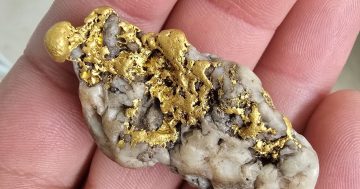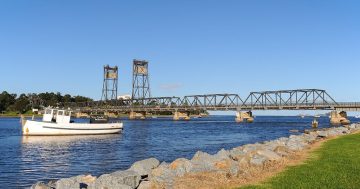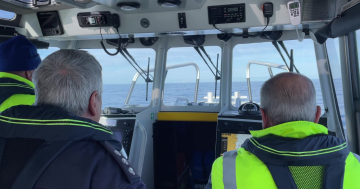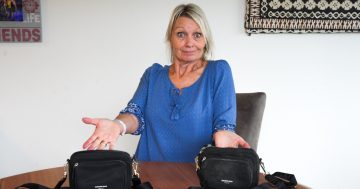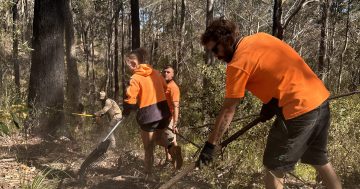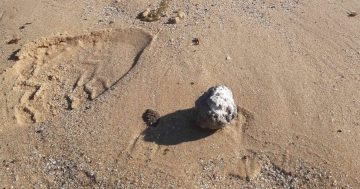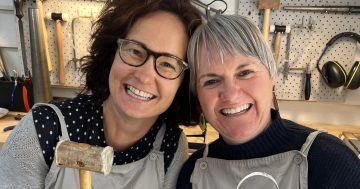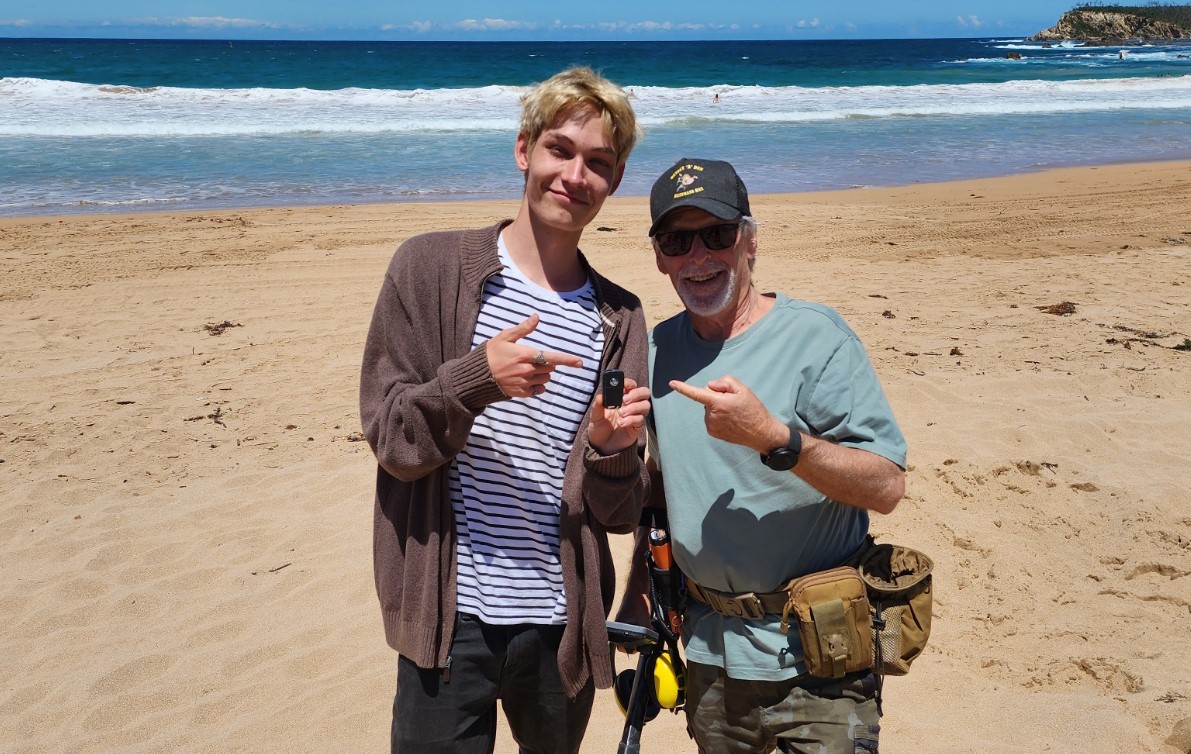
Bevan Badcott, South Coast metal detectorist, rescued Harry and his mates from being stranded after they lost their car key. Photo: Bevan Badcott.
Harry and his three young mates were down from Canberra enjoying a bit of a ”coasties” break at Malua Beach when they lost their only ticket home in the soft sand. The car key was gone.
Fortunately, Bevan Badcott was around.
The retired 71-year-old offers his free services with a metal detector and small shovel to those who have lost treasures on the beaches around Batemans Bay. After all, the “buzz” is enough for him.
“I did another one last year for a young fellow who was wearing his grandfather’s signet ring when it fell off in the water,” Bevan says.
“He was really upset, and his family was really upset with him, because these sorts of things are all part of a story, and when you think it’s gone forever, the story’s over. But when we can find it, the story continues with a new chapter. It gives me a real buzz to find something like that.”
His hobby hunting isn’t limited to beaches either.
“I’ve had some situations where a spouse has had an argument with their significant other and thrown something they shouldn’t have into the back garden, only to make up later,” Bevan says.
“I make no judgement and tell them not to worry, as long as they can tell roughly where they threw the ring, and how angry there were when they threw it too. I’ve been pretty successful with these.”
Bevan has dealt with metal ever since he trained as a pipe welder in his birth country of England. He moved to Sydney in 1971 and did more welding work before he changed tack entirely and became a shoe repairer. And then a funeral director and marriage celebrant.
It was a few weddings on the South Coast that convinced him and his wife to make Batemans Bay their home upon retirement.
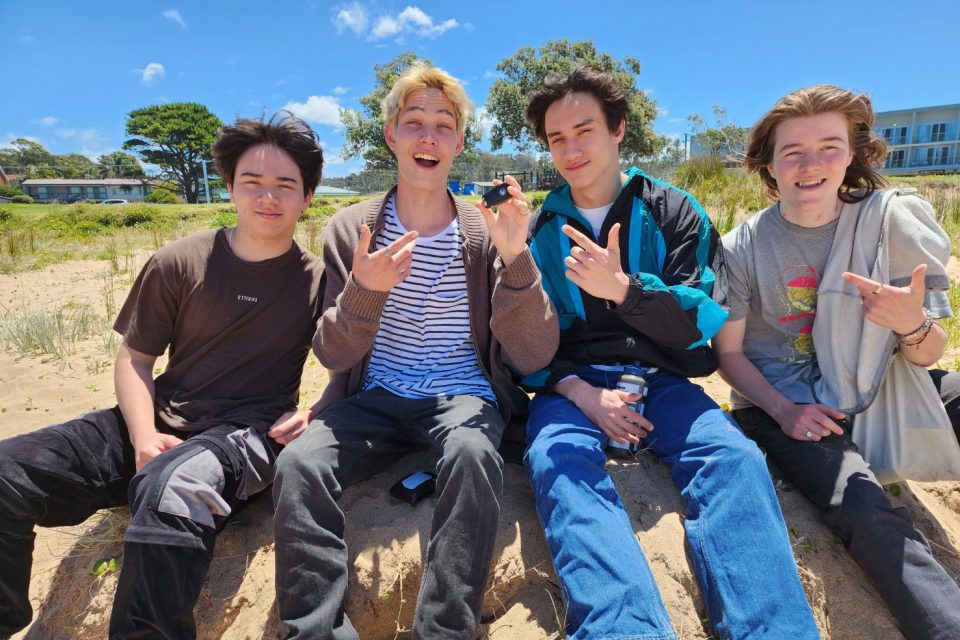
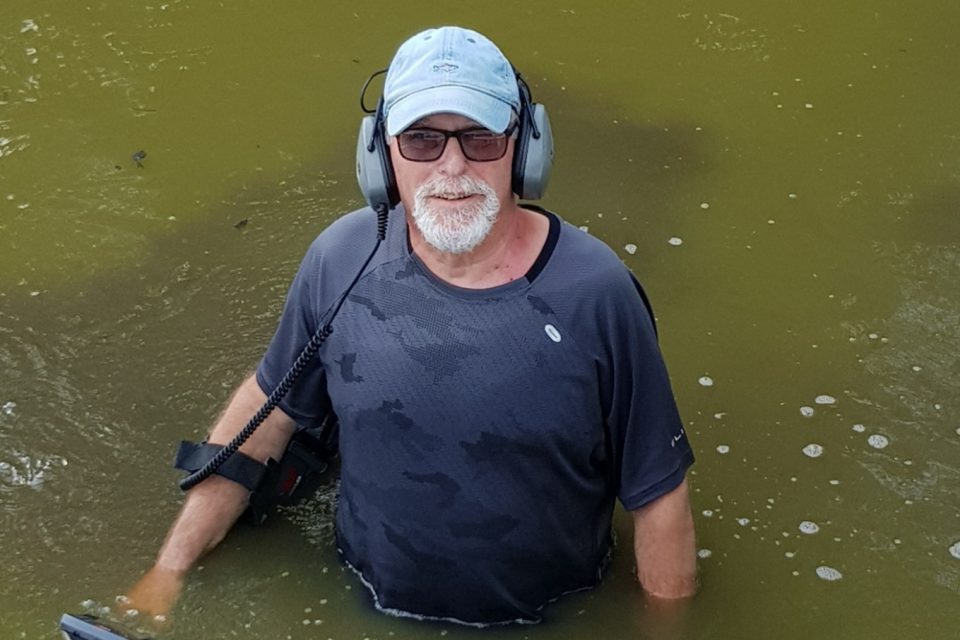
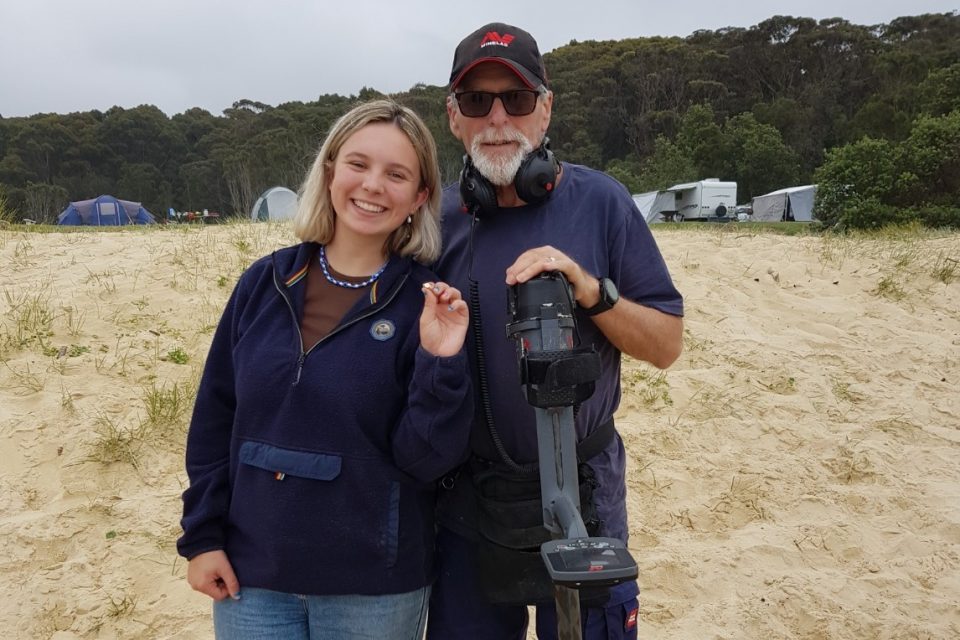
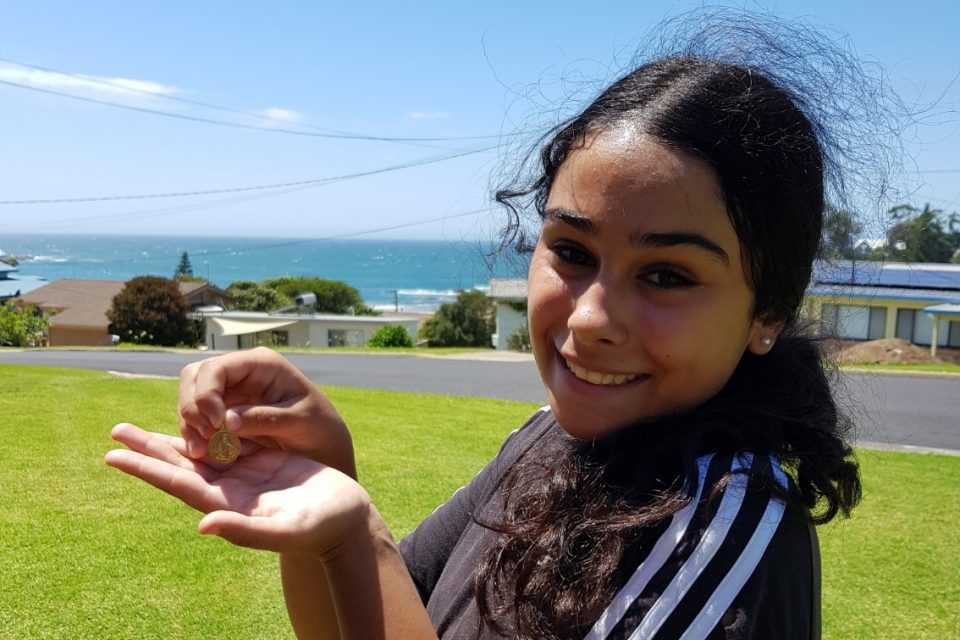
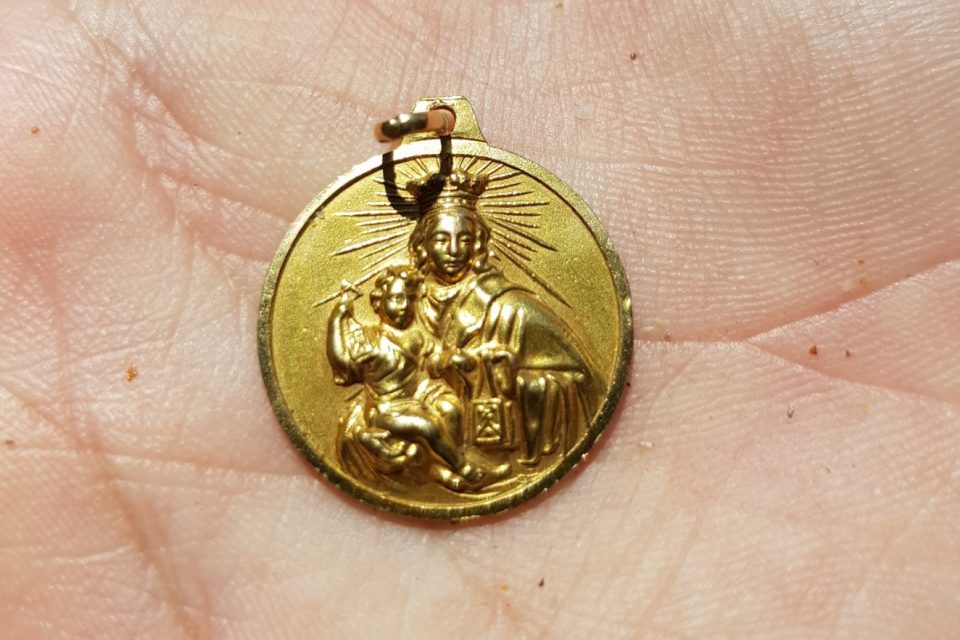
He stumbled into metal detecting on another of his “let’s-try-something-new” whims about 15 years ago.
“Maybe it’s part of man’s hunter-gatherer instincts,” he says.
“I was detecting on the beach when a young girl came up to me and told me how she had lost a set of three rings, and asked if I could take a look. That’s basically how I started doing ‘ring rescues’.”
Whenever Bevan is called out, he marks out where the person was sitting or where they think they lost the item and begins “mowing the lawn”.
“I’ll run over the area with the metal detector’s coil from north to south and then east to west. Metal detectors are so sophisticated these days that as long as the coil goes over the top of it, I can find it.”
Sometimes this means going chest-deep in the water.
“I’ve been chest-deep looking for a wedding ring that was lost at a ceremony on a pontoon. The best man dropped it and it rolled off into the murky water. The bottom was all sludgy too.”
The chance of recovery hovers around 85 per cent but, unlike other metal-detecting services, Bevan refuses to charge for his time.
“I don’t like walking away and taking money off people for no reason, so I tell people there’s no fee but if I find it and people are happy to give me a reward, I’ll accept it.”
As for what he digs up along the way, it can get interesting.
“I found a dildo once, just buried in the beach, which was probably the weirdest find.”
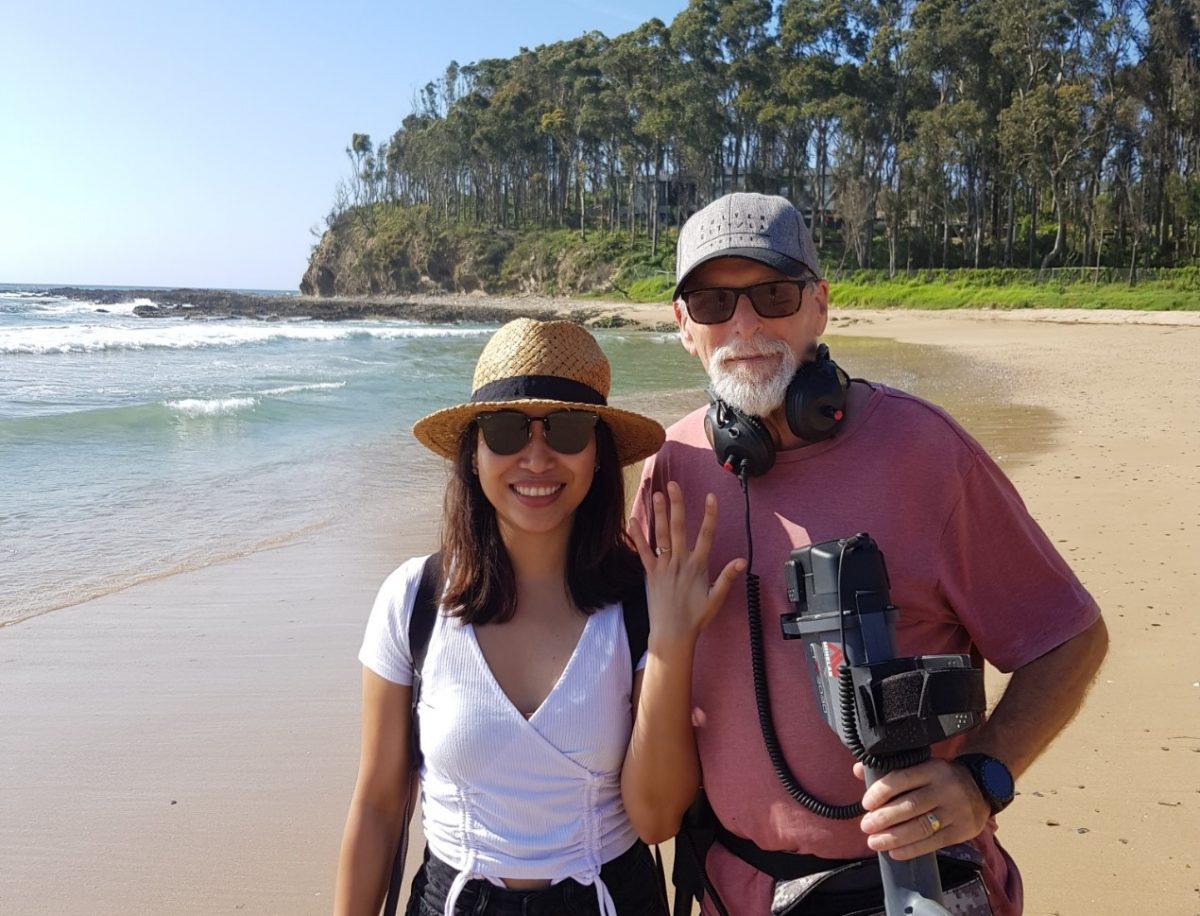
A very happy customer. Photo: Bevan Badcott.
Copper nails from disintegrated boats occasionally pop up, as well as the usual coins and rusty Coke cans. Bevan once found an old square-shaped Chinese coin, which he puts down to the 1850s gold rush in the area.
As for when he comes across owner-less rings, watches or other pieces of jewellery, he posts it on the local lost-and-found Facebook page to await a claim. Very rarely will one come forward, however.
“It’s natural to think that as soon as something falls into the water, it’s gone forever. But if you don’t look for it, you’ll never find it.”
Bevan certainly has no plans to give up anytime soon.
“It’s one of those passions that continues to grab me,” he says.
“I’m out, in the fresh air and walking, and getting excited not only when I find things but also when I see the owner’s face light up. It’s easy to piss people off – it’s not so easy to make them happy.”
Original Article published by James Coleman on Riotact.







